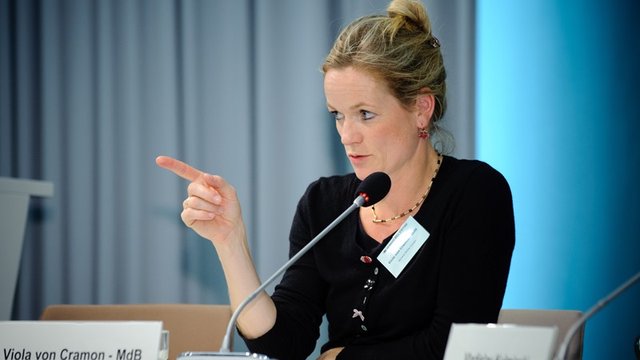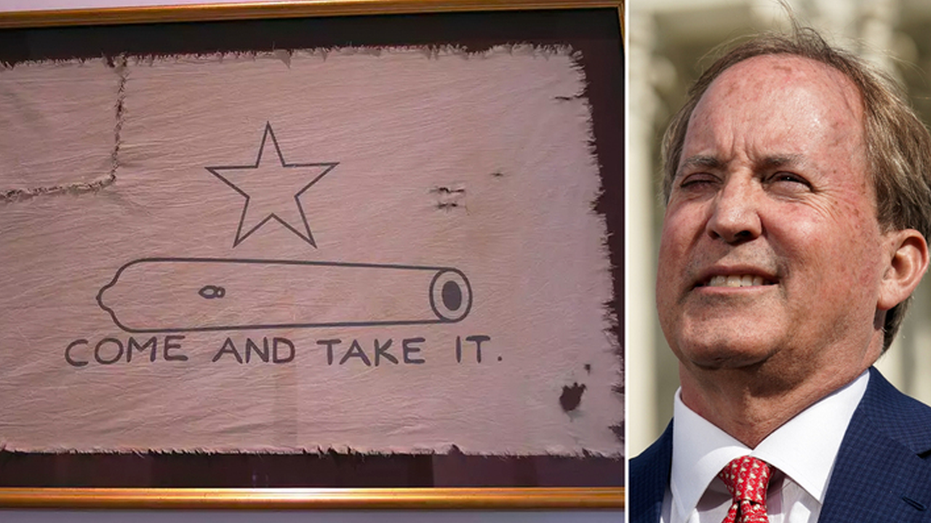Member of EU Parliament calls for increased opposition representation in Ukrainian government amid Russia’s war
In an interview with the Interfax-Ukraine, Viola von Cramon-Taubadel emphasized the need for inclusivity and transparency.


Member of the European Parliament Viola von Cramon-Taubadel has urged Ukraine to engage more representatives of opposition parties in executive government bodies.
In an interview with the Interfax-Ukraine agency, Viola von Cramon-Taubadel, a German politician of Alliance 90/The Greens party, stated that the step should be implemented because holding presidential elections in Ukraine is impossible due to Russia’s war.
The member of the European Parliament drew parallels with Israel’s swift response to security challenges under Prime Minister of Israel Benjamin Netanyahu’s leadership.
“From the beginning, we should have made it a precondition for providing financial assistance to Ukraine. You saw that Netanyahu established a military cabinet from the very beginning, within 24 hours after the Hamas attack. He ensured everyone was involved and spoke with one voice. We could have expected the same step from Ukraine,” she said.
Simultaneously, the official accepted the possibility of introducing this condition during future financial aid allocations by Western allies of Ukraine.
“I believe such a decision may be demanded by the US, the EU, Germany, and other donors in the future. I think ensuring that all political participation receives equal attention, access, and financial oversight is necessary,” the member of the European Parliament emphasized.
She said that this transparency will clarify the flow of funds and the rationale behind decisions.
Viola von Cramon-Taubadel also mentioned incidents when Ukrainian officials were left without permission to make foreign visits.
“Yes, we are closely familiar with this issue and are actively advocating for the rights of my colleagues. It’s truly unacceptable. In essence, it’s being used as a political tool against deputies who split from the presidential policy, and that’s a significant concern,” stressed the official.
At the same time, von Cramon said she is convinced that the press in Ukraine is “free,” although there are “certain limitations and, of course, a lot of “subcensorship.”
“It’s more like you’re thinking, ‘If I publish this, if I criticize that, it might play into Putin’s hands or help him undermine Ukraine. And naturally, this isn’t in the interests of most journalists. However, I wouldn’t go as far as to say there are absolute red lines that cannot be crossed,” explained the official.
On the other hand, she believes that “there is a tendency in the President’s Office not to give a voice to the opposition and critics.”
“In this marathon (national TV marathon), they practically included all journalists and managed to make the media landscape almost devoid of pluralism. This unity does not reflect the diversity of the political landscape; that’s why the marathon can be criticized. However, I wouldn’t say that there are no free and objective media,” stated the member of the European Parliament.
Earlier, European Council President Charles Michel expressed hope that Ukraine could complete the reforms necessary to access the EU by 2030.
Charles Michel: Russia’s invasion of Ukraine reinvigorates EU’s enlargement strategy
Speaking ahead of the 20th anniversary of the EU’s enlargement, which started on 1 May 2024, he mentioned the economic success of the new bloc’s members, adding that their combined GDP per capita is rising from around half the EU average then to 80% currently.
Six Balkan countries, Ukraine, Georgia, and Moldova, are among the applicants seeking to join the EU. Ukraine, with around 40 million people and a large agricultural sector, would be by far the largest prospective new member.
Read more:
- Hahn: Potential 20% EU budget hike from Ukraine’s accession only 0.2% of economic output, yet quick membership unlikely
- PM Shmyhal: Ukraine hopes to start EU membership talks in H1 2024
- Armenia deepening relations with US, EU, considers joining EU, FM says
- “Historic moment” as European Council decides to open accession talks with Ukraine



